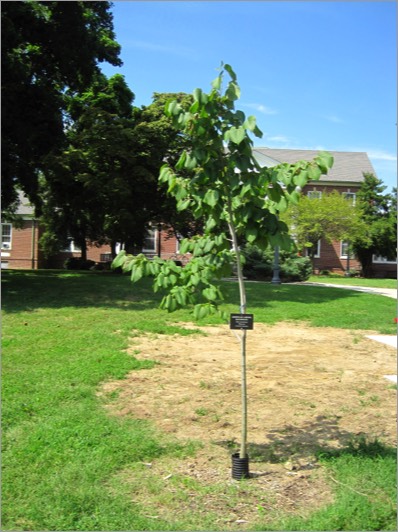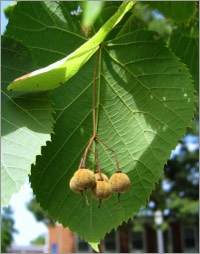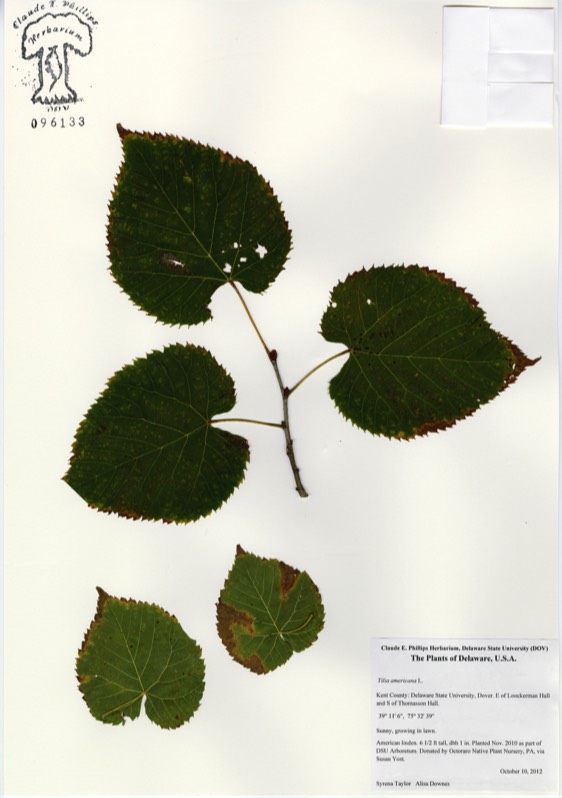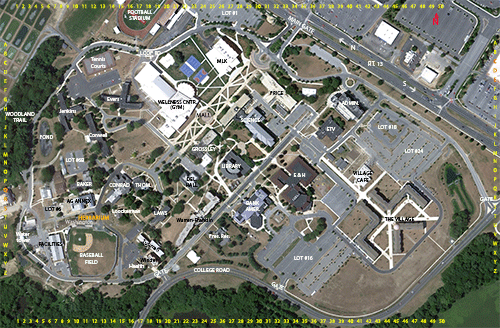Tilia americana


Tilia americana
AMERICAN LINDEN, BASSWOOD
Tiliaceae
E. North America
Location: map coordinates S-17 (south of Thomasson Building, on lawn), N 39°11'7'' W 75°32'39''
Planting history: planted November 2010. Source: Donated by Octoraro Native Plant Nursery (via Dr. S. Yost).
Description:
Native species, State Ranks: S4 (common, but not very common) in piedmont, and S1 (extremely rare, and of conservation concern) on coastal plain of all 3 counties of Delaware
AMERICAN LINDEN, BASSWOOD
Tiliaceae
E. North America
Location: map coordinates S-17 (south of Thomasson Building, on lawn), N 39°11'7'' W 75°32'39''
Planting history: planted November 2010. Source: Donated by Octoraro Native Plant Nursery (via Dr. S. Yost).
Description:
- medium-sized deciduous tree
- etymology: Tilia = the Latin name; americana = American
- leaves simple, heart-shaped (cordate), uneven at base
- flowers small, fragrant, yellowish, in clusters, in spring; attract pollinators like honeybees (hence linden honey). Linden tea made from dried flower clusters; flavorful, and also used medicinally for colds, fever, high blood pressure etc.
- fruit a nutlet attached to a green wing-like bract (modified leaf), which acts like a spinning parachute for seed dispersal
- common name “basswood” derived from the word “bast” (inner bark fibers) formerly used to make rope, twine, etc.
- wood light, soft; used for cabinet-making, musical instruments
- habitat rich woods, streambanks
- native range southern Canada south to South Carolina and northern Texas
Native species, State Ranks: S4 (common, but not very common) in piedmont, and S1 (extremely rare, and of conservation concern) on coastal plain of all 3 counties of Delaware


HIT REFRESH TO START LOCATION GRAPHIC